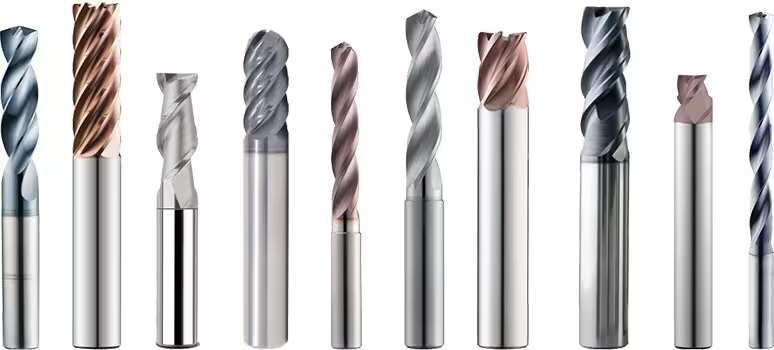Selecting the right carbide cutting tools manufacturer can make or break the performance of your operation. Truth is, the wrong supplier can introduce tool failures, inconsistent tolerances, unnecessary downtime, and a chain reaction of operational headaches. Most teams realize this only after they have already purchased a batch of underperforming tools. By then, the damage is done.
If you want to avoid that scenario altogether, the solution is simple: understand what separates reliable manufacturers from the rest of the field. At Suncoast Precision Tools, we have spent more than sixty years helping shops navigate these decisions. The insights below reflect what experienced machinists, procurement teams, and operations leaders actually look for when evaluating manufacturers.
Let’s walk through the essentials, step by step, starting with something people often overlook: credibility.
Evaluate Local Relevance and Availability of Carbide Cutting Tools in Florida
Before you compare product specs or coatings, confirm something far more practical. You need a supplier that keeps the right tools available and accessible in your region. Many Florida shops cannot afford long delays, and waiting on distant distributors slows everything down.
That is why Suncoast Precision Tools maintains more than 25,000 locally stocked items and offers same-day pickup at our Largo location. This ensures businesses across the state can quickly source carbide cutting tools Florida without dealing with backorders or long transit times.
Beyond availability, think about support. A manufacturer or distributor that understands your local workflows, common machining materials, and daily pressures is far more effective than a remote source that ships slowly and communicates even more slowly. When evaluating cutting tool manufacturers, regional accessibility matters more than most realize. It is the difference between operational continuity and unwanted disruption.
Review Quality Certifications and Process Controls
Once the reputation and availability checks are out, shift your attention to the technical side. Certifications and process controls are not just paperwork. They tell you whether a manufacturer uses structured systems to ensure quality remains stable as demand increases.
Look for indications of:
- Documented manufacturing standards
- Consistent material inspection points
- Real quality benchmarks used in production
- Transparent test documentation
Shops that embrace structured quality management produce cutting tools with fewer dimensional variations. They also tend to catch issues early, which protects your workflow from unexpected tool failures.
Another helpful indicator is how predictable their manufacturing output is. If a supplier’s tools perform the same way from batch to batch, that consistency comes from discipline on their production floor. And consistency is the closest thing you have to insurance in machining.
Understand Material Selection and Tool Construction
The quality of any carbide tool begins long before it reaches the machine. Material selection influences everything from tool strength and chip resistance to heat tolerance and tool life. High-quality carbide grades made with reliable raw materials usually create better performance in the long run.
Manufacturers that prioritize strong substrates often deliver tools that stand up to demanding applications. Those who cut corners with weaker material blends expose you to early tool failure, chipping, and unpredictable wear patterns.
Here are a few things worth confirming when evaluating a manufacturer:
- The carbide substrate composition
- The consistency of grain size
- How the manufacturer treats or processes the raw material
- Whether they use coatings suitable for your machining environment
These factors determine how the tool handles heat, pressure, and continuous engagement with difficult materials. If the supplier cannot clearly explain their material standards, consider it a red flag.
Consider Customization Capabilities for Advanced Applications
There comes a point where standard cutting tools are not enough. Maybe you are working with exotic materials. Maybe you are optimizing cycle times. Or maybe the geometry your application requires is so specific that the catalog version simply will not work.
Customization fills that gap. Even small adjustments in geometry, length, coating, corner prep, or flute design can significantly improve performance.
Situations where custom tools provide value include:
- Reducing the number of tool changes during production
- Improving chip evacuation in difficult cuts
- Enhancing edge strength for high-load operations
- Tightening tolerances for precision components
- Increasing throughput on long machining cycles
Suncoast Precision Tools works with manufacturers that engineer specialized solutions to match demanding applications. When a shop leverages custom tooling properly, productivity improves and unexpected inefficiencies often disappear. Sometimes the right custom tool eliminates hours of troubleshooting.
Examine Customer Service and Technical Support
Let’s be honest. Even the best carbide tools need guidance. Choosing a manufacturer that only provides sales support is not enough. You want a partner who can help troubleshoot challenges, recommend alternatives, and guide you through tool strategies that match your machine capabilities.
Look for signs of:
- Accessible technical staff
- Clear product documentation
- Practical machining advice
- Willingness to help diagnose tool wear issues
A manufacturer that provides educational value helps your team grow and prevents small problems from becoming costly mistakes. At Suncoast Precision Tools, this is part of our identity. We assist customers with tool selection, troubleshooting, and application insights every day. It is one of the biggest reasons Florida shops trust us with their tool procurement.
Analyze Pricing in Terms of Value, Not Just Cost
Manufacturers vary widely in pricing, but cost alone rarely tells the full story. A lower-cost tool that fails early is never cheaper once you calculate downtime, scrap, and rework. The real metric is value.
Consider how each supplier positions your operation for long-term performance. Better tools tend to:
- Extend tool life
- Reduce downtime
- Improve surface finish
- Produce more consistent results
- Lower cost per part
When you evaluate cutting tool manufacturers through the lens of lifetime value, the picture becomes clearer. Reliability always wins over budget pricing. That is why so many shops in Florida prefer suppliers known for consistency instead of chasing short-term deals that create long-term problems.
Evaluate Client Feedback and Real-World Experiences
In machining, feedback from other users offers insight that data sheets cannot. A manufacturer supported by strong testimonials usually stands behind their quality. These experiences give you a closer look at how tools perform in everyday conditions, not just in controlled environments.
Pay attention to feedback about:
- Tool reliability
- Wear patterns
- Heat performance
- Order accuracy
- Support response times
Consistency across these themes often signals that the manufacturer takes pride in delivering dependable results. At Suncoast Precision Tools, we see this reflected across our customer base. Machine shops, maintenance teams, construction firms, and engineering companies throughout Florida rely on our inventory because the results speak for themselves.
Your tools should never hold your business back. They should drive performance forward. Whenever you are ready to upgrade your tooling strategy, we are here to help.

